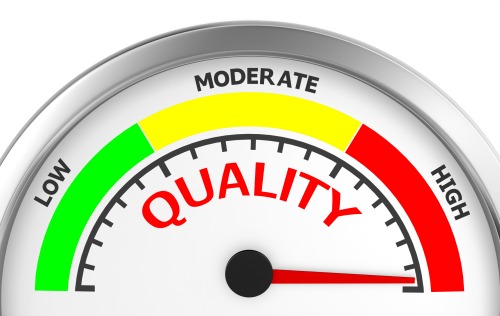Imagine going into a Starbucks café and not knowing if the coffee you order will taste like Starbucks, Dunkin’ Donuts, or Folgers Instant Coffee. On a business level, we would question the café’s efforts at quality control. Likewise, imagine a student turning in an essay and not having any idea if it meets the teacher’s expectations. We would again question the commitment to quality control but on an individual level.
To produce the best work possible, businesses and individuals make efforts to monitor the effectiveness of what they are doing and the quality of the work they produce. Metacognition is the term we use to describe the brain functions that enable us to control the quality of our output. Individuals with deficits in metacognition often produce inconsistent work. You or someone you know may struggle with metacognition if you or they:
Work inefficiently and frequently run into problems and delays.
Can't seem to improve performance and work product even with regular feedback.
Are usually surprised by poor grades or negative feedback on your work.
Fail to submit work or assignments because you are unsure of their quality.
By understanding what metacognition does and employing a few practical strategies, you will be able to help yourself or someone you know improve how they work and what they produce.
Know What is Expected:
Let's start with the final product. It is common for those with metacognitive deficits to have an incomplete idea of what they are supposed to do. Whether the end product is something you want to do or an assignment someone else gives you, the first metacognitive step is to have an accurate understanding of the end product:
Read the instructions carefully and underline or circle important points.
Create a checklist of what must be done.
When working with students, have them read and verbally explain the instructions to you. Check for accuracy and then have them create the checklist.
Ask the person giving the assignment to review or approve your checklist.
Refer to the checklist while you work to make sure you are on track.
Before Handing Work In:
Take time to review and check your work.
Take a break from the completed assignment and return to it for this last step.
Cross off each item on the checklist once the assignment is complete.
Review that checklist one more time!
Talk to Yourself:
People who work efficiently and produce consistent work do one essential thing, often without knowing it. They mentally ask themselves questions. Questions are powerful tools to help us monitor and evaluate our work and progress toward a goal. Be sure to write your questions so that you may refer to them when you are working. When working with students, ask these questions at intervals or create questions with them and prompt them to answer them. Below are examples of questions to monitor progress toward a goal and assess the final product.
Progress Questions:
“Am I following my plan?”
“Will I have enough time to meet my deadline?”
“Do I have what I need to complete the work?”
“What can I do if I have a problem?”
Product Questions:
“Did I do everything asked for?”
“Have I checked the spelling, grammar, math, accuracy, criteria, rules, etc.?”
“What grade would I give myself?”
“Did I incorporate past feedback into this final product?”
Metacognition enables us to monitor, reflect on, and evaluate both our work process and product. An executive function skills coach can help you identify and customize metacognitive strategies for home, work, or school. Don't let inconsistent effort and poor quality work prevent you from living a productive and fulfilling life.




